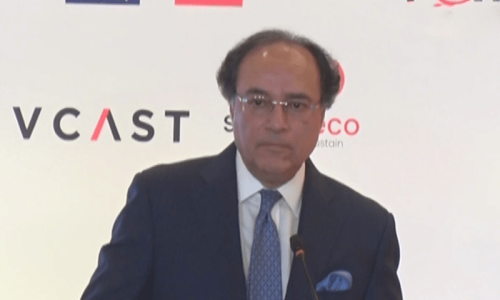KARACHI: The non-performing loans (NPLs) of the banking sector increased by 7.6 per cent, or Rs70 billion, during 2023, according to data released by the State Bank of Pakistan (SBP) on Tuesday.
The rise in defaults, influenced by high interest rates and sluggish economic growth, reflects ongoing financial struggles within almost all segments of the economy. Throughout 2023, political instability and economic uncertainties stymied growth across all sectors.
The data, covering December 2022 to December 2023, identified the textile industry as the largest defaulter, contributing significantly to the total NPLs, which escalated from Rs924.04bn in 2022 to Rs994.82bn by the end of 2023. This increase marks a 7.6 per cent rise in bad loans, highlighting a troubling year for the economy.
The textile sector alone saw non-performing loans increase by Rs18bn during the year to a total of Rs182bn.
This sector, critical not only as a major borrower but also as the largest contributor to the country’s export earnings, has been particularly vocal through its industry body, the All Pakistan Textile Mills Association. The association has criticised the government’s high utility costs and the record interest rates of 22pc, which they argue severely limit their competitiveness in global markets.
Rise in non-performing loans attributed to high interest rates, sluggish economic growth
Moreover, the private sector’s borrowing from banks dramatically declined, from Rs1,329bn in the previous fiscal year to just Rs208bn in 2023, as businesses were deterred by the costly borrowing conditions and higher risks.
Other sectors, including agribusiness and automotive, also reported increases in non-performing loans. Agribusiness defaults rose to Rs65.9bn, while the auto sector’s defaults increased to Rs19.3bn, attributed to the protracted economic uncertainty and prohibitive interest rates.
Bankers and analysts are cautiously optimistic that the SBP may lower interest rates in its next monetary policy announcement due on April 29.
However, the business community remains sceptical that a reduction of 100 to 200 basis points will be sufficient to rejuvenate the economy. Many are advocating for a significant cut, suggesting rates should be lowered to 10pc to 15pc to reduce the cost of doing business and stimulate economic recovery.
Published in Dawn, April 24th, 2024












































Dear visitor, the comments section is undergoing an overhaul and will return soon.